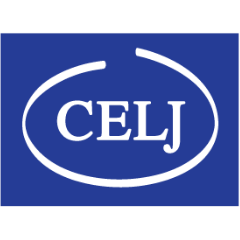LPC’s Strategic Affiliates Program connects our community with peer membership communities working in libraries, publishing, and scholarly communications. LPC’s leadership has regular touch base calls with each of our affiliates and occasionally invites their leadership to group discussions on topics of broad interest. This work helps us to support the ‘community of communities,’ to align our work and to avoid duplication of effort. However, it is largely invisible to LPC’s membership. To recognize our affiliates’ contributions to our community, and to connect our members to resources and opportunities in peer communities, we are publishing a series of Affiliate Spotlights on the blog in 2024.

About
Name: The Council of Editors of Learned Journals (CELJ)
Website: https://www.celj.org/
X (Twitter): @celj_editors
Strategic affiliate since: 2020
The Council of Editors of Learned Journals is an international association for scholarly journal editors. Our mission is to enable conversations, collaborations, and communication around scholarly journal editing and to mentor editors and authors by creating an inclusive scholarly communications landscape.
Resources
If LPC members are journal editors or work with journal editors who could use more support or training in being editors, CELJ is a welcoming organization that can help!
The organization’s greatest strength is its members, who participate in editor–editor mentoring through our members-only discussion list and editor–author mentoring through face-to-face and virtual Chat with an Editor sessions at institutions and conventions. These discussions create space for potential authors and editors to ask questions they might be afraid to email into the editorial abyss about getting published or starting editorial work. The virtual spaces have proven especially helpful to BIPOC and other multimarginalized scholars, which in turn helps us make scholarly publishing more inclusive. Collective knowledge-sharing of scholarly editorial workflows among the members and with potential authors and new editors is a cornerstone of CELJ’s inclusive mission.
CELJ offers free resources on its website to assist editors with their work. Some of these resources include in-house authored guides on Best Practices for Online Journals, Guidelines for Contributors, Tips on Publishing, Tips for Starting a New Journal, and a Letter of Support for Editors. CELJ also maintains up-to-date links to inclusive style guides from a range of identity-specific organizations (e.g., National Association of Black Journalists, Native American Journalists Association, The Association of LGBTQ Journalists, Trans Journalists Association, etc.).
CELJ also provides a Featured Journal section on its website in which we interview one of our member journal editors. As an Allied Organization of the Modern Language Association, CELJ’s membership is mostly humanities and humanistically oriented social science journal editors, and we welcome journal editors from any disciplinary background. At the annual MLA convention (not to be confused with the Michigan Library Association or the Music Library Association), CELJ sponsors several sessions that feature key topics on editorial work. This past year’s convention featured sessions on Graduate Student Labor and the Future of Editing, Mentoring New Editors into Scholarly Journal Publishing, How to Get Published in a Scholarly Journal, Inclusive Citation Practices in Research and Editing, and Making Digital Humanities Projects Public. Previous years have also featured sessions on inclusive editing practices, peer review, and editorial workflow issues. Some of these sessions have been recorded and posted on our members-only website and will be featured in virtual CELJ conferences, starting in 2024.
CELJ is a resource for library publishers or the journal editors they work with. Publishers and editors can access free resources mentioned above or join (individually or as a group through the library publisher, who then gets one free membership for themselves) to gain access to exclusive resources, such as the confidential discussion group and the annual journal and editorial awards CELJ offers. Many journals and press journal managers join for the awards and stay for the rich mentoring discussions.
Collaborations
CELJ collaborates with several organizations to produce knowledge-sharing about editorial processes and scholarly publishing. CELJ has shared several reading group meet-ups with LPC members to cover new documents and guidelines on diversity, inclusion, and accessibility in scholarly publishing (e.g., C4DISC Toolkit for Disability Equity; Equity, Diversity, and Inclusion in APA Journals; Anti-Racist Scholarly Reviewing Practices heuristic, etc.).
As CELJ continues to create knowledge-sharing events on editorial processes, we will invite LPC members to its reading groups, webinars, and future conferences.
